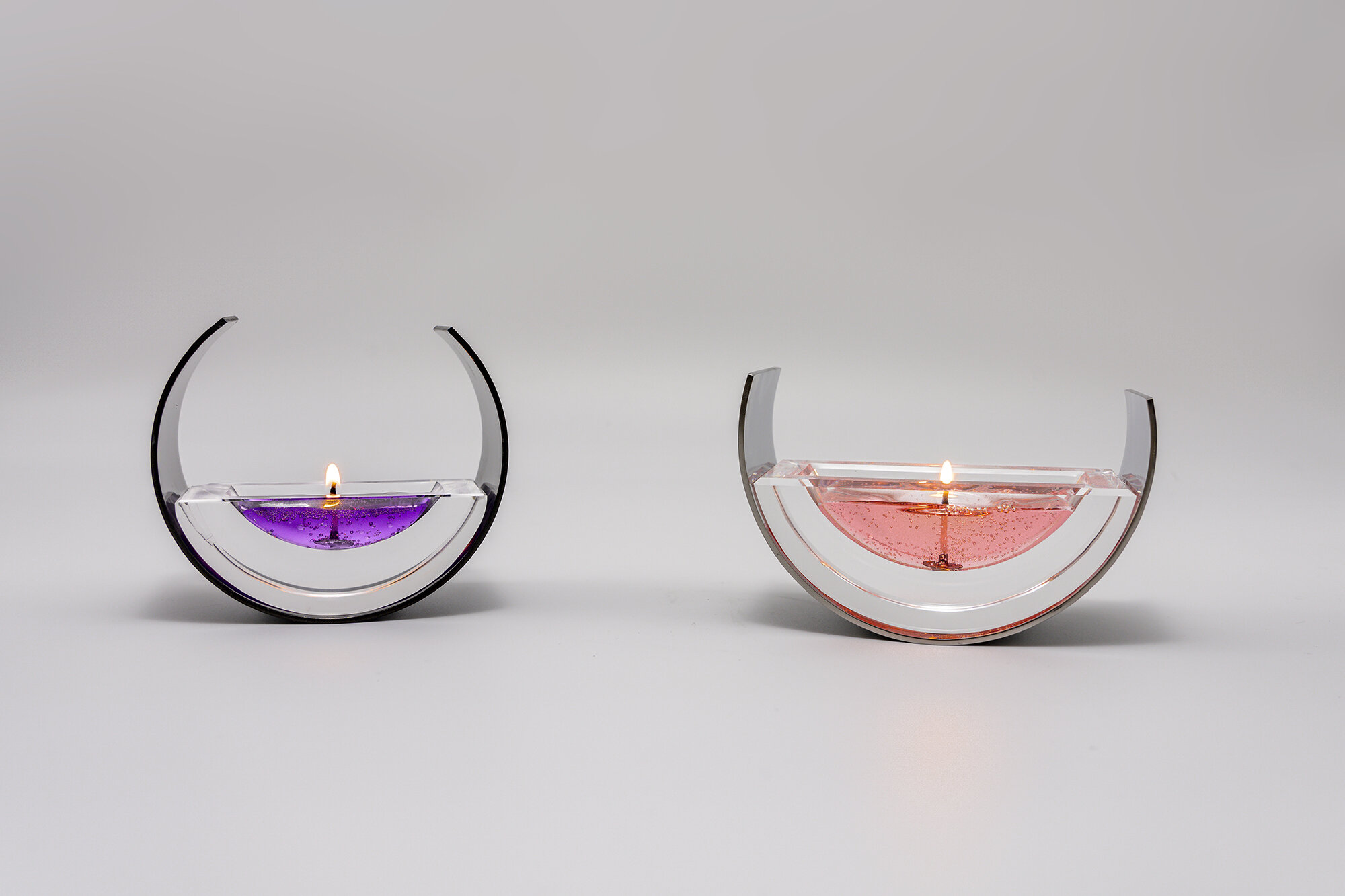Look twice: Everyday objects reimagined
Cluster Exhibitors | Cluster Crafts | 2020
Even the smallest, most common of items can take your breath away. Often the hardest design challenge is to reimagine the ubiquitous items that we take for granted and give them magic. Both Hideaki Nishimura of Atelier Anti and Maarten Baptist work to catch your attention with simple, beautiful objects in the home.
BALANCE IMBALANCE 01
Architect Hideaki Nishimura was born and educated in Japan but has lived and worked in Paris and Milan. Nishimura works across a range of mediums, including installation, architecture, sculpture and photography. This highlights his curiosity and desire to push boundaries. He is currently based back in Tokyo, where he started to pursue life as an artist in 2019.
His aim with his art and architectural pieces is to capture the relationship between space, time and the forces in the universe. He also plays with the tension between the inside and the outside of an object.
SINGULAR SURFACE 03
SINGULAR SURFACE 02 Axonometric
Nishimura’s collection of work for the Cluster Craft’s online exhibition and store is titled Cradle. It was created exclusively for the Cluster platform and demonstrates Nishimura’s highly conceptual way of thinking about even the simplest of items.
“Cradle" is conceptualised not just as a decorative candle holder, but as an artistic instrument that focuses and reflects the fluctuation of physical phenomena such as light, shadow, liquid and flame,” he explains.
“Through this artwork, I attempt to enhance our perceptions of the aesthetics toward physical phenomena and laws lurking in the depth of our everyday lives.”
CRADLE MULTIPLE
CRADLE Ф124 Quartz & Stainless Steel| BUY THIS PIECE HERE
Minimal in shape and in material, the artworks are made of only of fused quartz and stainless steel with various finishes to give each piece its own character. A void in the fused quartz is filled with candle wax in various colours.
These pieces are achieved in collaboration with highly skilled manufacturers and – unlike much of the work incorporated into Cluster’s collections – they are all machine made rather than made by hand.
CRADLE Ф124 Quartz & Stainless Steel| BUY THIS PIECE HERE
“As an architect and contemporary artist, I do not place emphasis on handmade. The philosophy of the artist, the concept of the work and the message to the world are always the most important for me, even more than the output itself of the work,” he explains.
Nishimura’s inspiration comes from unexpected places. Abstract visions, fragments of works, or drawings in a notebook.
Although the delivery appears minimalist, the artworks are conceived with great attention to geometry and physics, each piece created with perfect proportion. The monochromatic finishes aim to enhance rather than distract the viewer from lines of the piece itself.
“In this artwork, the physical properties of the materials such as reflection, refraction, glossiness and transparency are more important than colour or finish.”
CRADLE Ф444 Quartz & Stainless Steel
Tripod Wine Glasses| BUY THIS PIECE HERE
Tripod Glass Espresso Cup
“My teacher Li Edelkoort told me that the toaster should be more expensive than the bread,” explains Baptist. “This glass makes your precious wine or other drink more outstanding.
“The Tripod glasses shows how I like to work. I don’t like decoration on an object – everything should be a logical result of what’s needed.”
Instead of playing with the shape of the wine vessel, Baptist instead turned his attention to the stem, where not many designers have made changes to the detail.
“I think the function of a designer is to make consumers a bit uncomfortable and to re-evaluate the objects they use,” explains Baptist. “By adjusting objects, we can investigate what we like and what can be better.”
Another creator working with geometry and receptacles is
Dutch artist Maarten Baptist.
Born in the Netherlands and based in Eindhoven, Baptist makes high-end tableware that compliments with his love of good food, delicious wine and coffee. His interest in design and craft began as a boy, playing the workshop of his father.
Baptist’s contribution to the Cluster online collection is the range of
Louise Tripod glasses. His work is highly functional and aims to elevate everyday domestic habits with glassware that takes your breath away; he sees it as his artistic responsibility to keep a sense of wonder in his pieces.
Tripod Glasses| BUY THIS PIECE HERE
Baptist hopes that his work will challenge home cooks and baristas to be more experimental with how they present food and what combinations of flavours they can release.
“This tripod glasses are very nice for red wine. When you hold the tripod glass you can really spin the wine in the glass to give it more air.”
Where his glassware is provocative and inspiring, his furniture is more pragmatic. Aiming to solve the problems around the house.
Work by both Baptist and Nishimura is available on the Cluster online shop.







